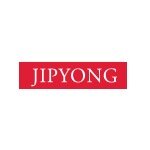Best Retirement Lawyers in Jung-gu
Share your needs with us, get contacted by law firms.
Free. Takes 2 min.
List of the best lawyers in Jung-gu, South Korea
About Retirement Law in Jung-gu, South Korea
Retirement law in Jung-gu, South Korea, is designed to ensure that citizens and residents can transition smoothly into their retirement years with security and dignity. The legal framework surrounding retirement involves pension systems, retirement age regulations, and employee benefits, which are influenced by both national policies and local governance. The National Pension Service (NPS) is the primary body that governs the pension system in South Korea, and it provides various options for retirement savings, catering to employees in diverse sectors. Understanding the intricacies of these laws can be crucial for securing financial stability after retirement.
Why You May Need a Lawyer
There are several situations in which seeking legal advice regarding retirement might be necessary:
- Understanding pension entitlements and ensuring you receive the correct amount.
- Navigating disputes with employers over retirement benefits.
- Planning for early retirement and understanding the financial implications.
- Interpreting changes in retirement laws and how they affect your pension.
- Handling international retirement benefits if you have worked outside South Korea.
Local Laws Overview
In Jung-gu, the legal landscape concerning retirement is framed by local adaptations of national retirement policies. Residents of Jung-gu must comply with the regulations set by the National Pension Service, which dictates eligibility and benefits. The official retirement age for private-sector employees is 60, but this can vary for public sector workers. Mandatory employer contributions to employee pensions are a key aspect of retirement planning. Moreover, government initiatives to bolster the retirement income system ensure that benefits keep pace with inflation and cost of living adjustments.
Frequently Asked Questions
What is the official retirement age in Jung-gu, South Korea?
The official retirement age is generally 60 for private-sector employees, although specific sectors might have different retirement ages.
How can I calculate my pension benefits?
Individuals can use the pension calculator available on the National Pension Service's website for an estimate of their retirement benefits based on contributions and years of service.
Can I receive retirement benefits if I've worked overseas?
Yes, but it depends on bilateral agreements between South Korea and the country in which you have worked. Legal advice may be needed to navigate these complexities.
Are retirement benefits taxable in Jung-gu?
Yes, retirement benefits are subject to taxation, but certain exemptions may apply depending on individual circumstances.
What should I do if I face issues receiving my pension?
It's advisable to contact the National Pension Service for assistance, and consider seeking legal advice if the issue persists.
Can I retire early, and what are the implications?
Yes, early retirement is possible, but it may reduce the amount of pension benefits you receive. Legal consultation can help assess financial feasibility.
What legal rights do I have regarding employment retirement contributions?
Employees have the right to verify their employer’s contributions to their pension and seek remedies if discrepancies are found.
How do legal changes affect my existing retirement plan?
Changes in retirement laws can influence your pension and benefits. Staying informed and consulting with a legal advisor can help mitigate risks.
Can pensions be inherited by family members?
Pension benefits can sometimes be transferred to family members in the event of death, subject to specific conditions.
What support is available for low-income retirees?
The South Korean government provides social programs to assist low-income retirees, including subsidies and additional benefits.
Additional Resources
Here are some resources that can help you better understand retirement laws and services in Jung-gu:
- National Pension Service (NPS) - for detailed pension policy information.
- Korean Ministry of Employment and Labor - for insights into employment laws impacting retirement.
- Local legal aid offices in Jung-gu for pro-bono or low-cost legal assistance.
Next Steps
If you need legal assistance in matters of retirement, consider reaching out to a local attorney specializing in retirement law. They can provide advice based on the specific details of your situation. It's also advisable to gather relevant documents, such as employment contracts, pension statements, and correspondence with employers or pension bodies, as these will be critical in your consultations. Additionally, familiarize yourself with your pension statements and any legal documentation you might currently hold.
Lawzana helps you find the best lawyers and law firms in Jung-gu through a curated and pre-screened list of qualified legal professionals. Our platform offers rankings and detailed profiles of attorneys and law firms, allowing you to compare based on practice areas, including Retirement, experience, and client feedback.
Each profile includes a description of the firm's areas of practice, client reviews, team members and partners, year of establishment, spoken languages, office locations, contact information, social media presence, and any published articles or resources. Most firms on our platform speak English and are experienced in both local and international legal matters.
Get a quote from top-rated law firms in Jung-gu, South Korea — quickly, securely, and without unnecessary hassle.
Disclaimer:
The information provided on this page is for general informational purposes only and does not constitute legal advice. While we strive to ensure the accuracy and relevance of the content, legal information may change over time, and interpretations of the law can vary. You should always consult with a qualified legal professional for advice specific to your situation.
We disclaim all liability for actions taken or not taken based on the content of this page. If you believe any information is incorrect or outdated, please contact us, and we will review and update it where appropriate.








